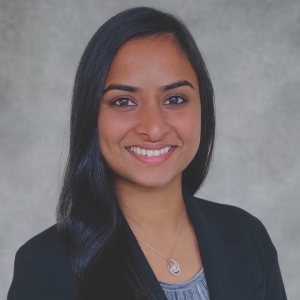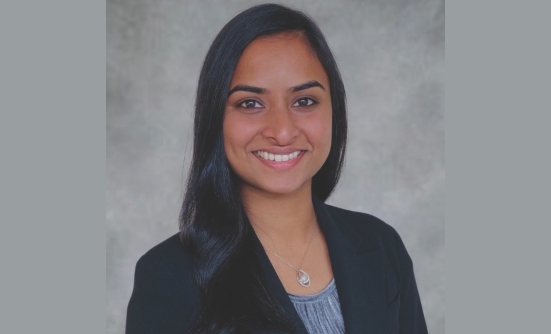
My aunt had breast cancer. My family knew that. We all knew she was getting worse, and we all knew that this day was inevitable. But that didn’t make it any easier. It was Monday, April 19, 2020. I woke up in my house in Sacramento with a pounding headache and a feeling of unease. My family called me the night before, telling me how my aunt was having a slightly harder time breathing.
We all thought it must be because her ascites (accumulating fluid) was filling up in her abdomen, which was compressing her only good lung; the other lung was already filled with pleuritic fluid. But I was unaware of the extent of her distress.
My family was in San Jose, and I was in Sacramento, finishing up my third year of medical school. They were trying to shield me from the pain about her, because I was approaching my final exams.
However, my uneasiness, general discomfort, and guilt about not being with her were spewing in me, and I finally blurted out all my feelings to my dad on the phone that day. I spent an hour crying to him about how I couldn’t get my mind off my aunt, although we didn’t know the seriousness of the situation.
My Aunt
Let me explain my connection with my aunt. I was born on the East Coast but moved to India when I was about 8 months old. My parents had decided to leave me with my grandparents and my aunt, who at that time was living with them. My aunt was essentially my mom for the first 5 years of my life, until she moved away. The reason was to help my grandfather feel less lonely after his retirement. Our bond was created then, and it grew stronger when our families reunited later in California; we lived within 20 minutes of each other.
I visited her every weekend. She would cook my favorite food and spoil me in different ways. I grew up with her unconditional love, which I was taking for granted. But when her cancer got worse during my medical school years, I was very affected.
As a medical student learning about all the frightening things that happen to our bodies, hearing about how my aunt’s organs were getting affected one after another scared me to my core. Doctors did not tell my family yet, but once my aunt was diagnosed with brain metastases, I knew her life expectancy was short.
So, even during the busy 3 years of medical rotations, I visited her every weekend. I believe we need to love those who love us more than we love anything—what is this world without love and relationships? I learned that from my aunt.
Hospital Admission
On April 21, she had an appointment at the gastroenterology clinic to assess her ascites, and to try to remove some fluid. When they checked her vital signs, her pulse oximetry was in the 70s, which is very low. After trying different things, they decided to send her to the emergency department to get a better reading of her oxygen level. I was hoping that it was a false reading, but instead she was admitted to the hospital to get oxygen supplementation.
The next day, the side effects of her last chemotherapy returned. The lung she was using to breathe was now affected by interstitial lung disease, an inflammation of the lung tissue. Despite starting treatment with steroids and antibiotics, she required oxygen support and was admitted to the intensive care unit (ICU).
A part of me knew where she was headed, but a part of me held on to the idea that she made it out of the hospital many times before, so she could do so again.
On April 24, I woke up after maybe 3 hours of sleep. I called my uncle first thing in the morning and learned that my aunt wasn’t doing well, but her vital signs were holding stable, and she was alert.
A Phone Call and COVID-19
Around 2 PM, I received a phone call from my uncle. He broke down and said, “Sindhu, they are saying she doesn’t have much longer. It’s done.” My mind went blank. “What timeline are we talking about? Days? Weeks?” He replied, “Hours or minutes.” I broke down. I put things in my bag, all the while praying that she remained alive long enough for me to make it to the hospital in the next 2 hours. I had to see her.
In the week of her hospitalization, as if struggling to breathe was not enough, she had to spend the last week of her life alone. None of our family members were allowed in, because of the strict prohibition of hospital visitors during the early time of the COVID-19 pandemic.
We did FaceTime every day, and so did most of my family members. In the middle of the week, we had a video call with my whole family. Looking back, I’m so glad we did that. It was the last time I saw her laugh.
That evening, I drove to the hospital but learned that I wouldn’t be able to see her. The hospital made an exception and at least allowed her kids and husband to visit. The rest of us stood outside all evening. My cousins saw her, but they had no idea that it would be the last time.
The Last Evening
When I took them home that evening, I told them that they had just seen their mom probably for the last time, and she would not survive the night. I don’t think I will ever be able to erase the look on their faces from my memory.
My parents came home a few minutes later, after my uncle had told them that they began to withdraw care, but that it might take a while. We were all home around 11:15 PM. At 11:22 PM, I got a call from my uncle, who told me to go to a room alone and stay on the phone. He was allowed to stay with her until the end. We stayed on the phone together, as he started reading to me her vital signs and her mental status. Minute by minute we watched as her heart rate started slowing down, her respiratory rate diminished, and she was slowly weaned off her oxygen supply.
He said she looked like she was in the most peaceful sleep she has had in months. We decided to whisper a few words in her ear. We told her how much we loved her, and how much we would miss her. We told her that we would take care of her kids like our own. She died at 11:53 PM on April 24, 2020.
Change to Come
After her death, things were very different. We all knew our family was never going to be the same. My aunt was the voice of our family. The one with the most contagious laugh, who never let a single silent moment fill the room. The one who planned family trips. And the one who was always hopeful and never gave up.
For the days and weeks after, being alone was the worst. Seeing her house brought back memories and tears. I would see her in every room in her house, and for a long time it felt that she was still there with us. When we were all together, we had moments when things felt normal for a while. We would laugh at a joke the kids shared. Then we would think about her, and how she would enjoy family gatherings. It wasn’t the same without her.
To this day, the part that hurts me most is that she had to spend the very last week of her life all alone, because of COVID-19.
My family has been by her side every moment of her life. Even the few months before her death, when she started getting very sick, we were all right there. Someone or another was up at night watching over her, rubbing her back when she had coughing fits, and keeping her comfortable.
In the ICU During a Pandemic: Above and Beyond Care
Later, as a 4th-year medical student, I did a rotation in the ICU on July 2020, amidst the COVID-19 pandemic. It was a roller coaster ride. Getting adjusted to the ICU is one thing, but being there during a pandemic, with the hospital operating at full capacity, is another.
It was a month of many firsts. First time organizing a family meeting. First patient death. First time crying in front of everyone. First time giving a family bad news. I cried almost every other day mostly because every patient death was very triggering for me. My wounds were still very fresh.
But it was also the first time I saw the humanism in medicine emerge at full capacity. After experiencing my aunt’s death so recently, I went into the rotation with a fresh perspective and drive to invest fully in the care of every one of my patients. I spent hours sifting through charts and making phone calls, to make sure we knew everything about my patients’ medical history.
But I also soon realized that I needed to be much more than that. At a time when visitors were limited and patients were dying alone, I saw how important we are as a care team not only to tend to medical needs but to emotional ones as well. I and many others in the care team made it a priority to call every family every day to provide updates.
I saw the nursing staff set up Zoom calls whenever they could so patients can communicate with families. I saw the palliative care team working to bring religious representatives to perform ceremonies when asked for.
I saw nurses, fellows, residents, attendings cry after deaths. And I saw nurses and physicians holding patients’ hands until the last breath.
The Human Touch
At an unprecedented time in our history, it was up to us as the care team to step up and stand by our patients and their families. No one should spend his or her days in the hospital feeling alone, and no one should be dying alone.
I felt more at ease when I saw that human touch was still ever present. I only hope that this was how my aunt was treated that week in the hospital.
Looking back at what my aunt went through, I know this was for the best. I’m glad that things ended before she suffered worse side effects. And I’m glad for the many memories that I have with her, and the many lessons she has taught me.
I don’t think that I’ve accepted her death yet, but I know that this experience has transformed the way I plan to practice medicine, and the way I will treat every patient I take care of. I will treat them with that human touch.





